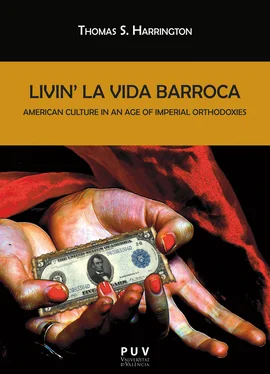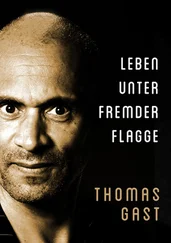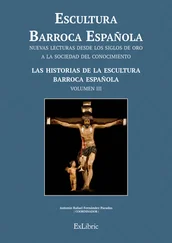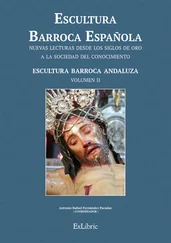Just imagine for a moment what the reaction would be if a contemporary German were to explain the collective angst of the modern “Jewish Mind” not primarily in terms of German aggression but rather on the decision of “the Jews,” symbolized by the often superstitious and, at times, misogynist inhabitants of the shtetls , to turn their backs on the brighter paths of development offered them by the surrounding national cultures of Europe?
Rightfully, no one would stand for such a thing. Yet when the victim being blamed is an Arab, it goes largely unnoticed.
The silken-tongued Lewis, who formerly taught at Princeton, is a “renowned” scholar of the Ottoman and Arab worlds. But to read his work is to be told, again and again, variations on the same simple story. It goes something like this: “The Arabs” are underdeveloped socially and politically in contemporary times because of their own penchant for administering self-inflicted wounds. Their inability to face honestly the cost of their Islam-induced failure to embrace modernity (and its child, secularism) has made them pathologically rageful, especially against the Jews and the state of Israel, an entity that merely wishes to live at peace with its neighbors.
For Lewis, the issues of past colonialism, present Israeli land grabs, and intimate US and Israeli connivance with Arab dictators don’t really exist as true causal factors for “Arab anger” and underdevelopment.
In contrast to the fate of writings by most professors, the ideas of Patai and Lewis have enjoyed considerable resonance outside the walls of academe. For example, Patai’s book is, I have been told, still widely prescribed and read within the US military, intelligence, and diplomatic communities. Lewis remains, at age 95, a frequent commentator on Middle East affairs whose views are often invoked by think tankers on C-Span and by well-known syndicated columnists.
This is probably one of the main reasons your otherwise internationally uninterested neighbor feels so comfortable about lecturing both you and me on the implacably violent and uncivilized nature of “those people.”
Some might argue that the prominence of the ideas of Patai and Lewis is simply a matter of conspicuous brilliance being duly rewarded in the “free” marketplace of ideas. And perhaps this is true.
But a far more compelling explanation for the wide currency of their main theses, one that takes into account the always considerable influence of state institutions and their political needs on the creation of “popular tastes,” is that they provide the US and its very close ally Israel—an entity of which both writers are/were passionate supporters—with something both nations badly need and badly desire: an intellectual justification for their ongoing attempts to invade, seize, or otherwise control the resources of territories inhabited by Arabs.
You see, if Arabs are congenitally backward, which is to say, among other things, preternaturally violent and undemocratic, then it is only fitting that the U.S. and Israel treat them differently—more violently, more autocratically, and more paternalistically—than the other, more civilized peoples of the world.
We’ve all heard those who explain away police violence and brutality on the basis that, unlike you and me, “those poor guys are faced with dealing lots of ‘crazy’ people every day.” For Israel and the US, the arguments of Patai, Lewis, and their many popularizers at think tanks and in the media have much the same effect.
If Arabs are, as the great scholars suggest, effectively incorrigible, then decidedly illiberal measures (starting with unprovoked invasions and bombing at will) against them are more than warranted. Right?
But what if it is not really true? What if, as recent events seem to suggest, Arabs merely want most of the same things we want—freedom, prosperity, and dignity—but in configurations consistent with their own unique collective histories?
What if, owing to our media’s deep attachment to the erudite but not necessarily insightful ideas of people like Patai and Lewis—and its simultaneous blockage of institutions and materials that allow a modicum of Arab first-person expression—we have lost the ability to hear, never mind register and respond to, the voices and aspirations of millions of basically peaceful and freedom-seeking people?
Now that would be a tragedy of truly biblical proportions.
2 March 2011
Controversialization:
A Key to the Right’s Continuing Domination of Public Debates
Yesterday, our local NPR station hosted a debate about what themes should and should not be included in school-sponsored drama productions. The discussion followed a pattern that has become quite familiar on our airwaves within the last three decades. In this oft-repeated dance, an earnest moderator conducts a series of interviews guided by what he or she portrays as a desire to find the appropriate “balance” between our constitutionally guaranteed rights to free expression and the possibility imposing “offensive” messages upon an unwitting public.
At first glance, this line of inquiry would appear to have few, if any, real drawbacks. After all, those of us of a certain age know that life is often about balancing what we have a formal right to do or say against that same action’s potential for generating negative or disagreeable side effects.
But when we look at this practice of automatically seeking balance in a different light—one that takes into account the widespread use of what the investigative journalist Robert Parry calls the practice of “controversializing”—we can see how it has greatly lowered quality of our civic discourse.
At the core of the practice of controversializing is an age old political problem: how to get your way—or at least seriously blunt the prerogatives of your opponent—when you enjoy neither strong popular support nor a clear-cut legal basis for instituting your ideological project.
This is exactly where the American Right found itself in 1971. At that moment, long-standing American business and military elites were reeling. Disaffection with the Vietnam War, and the entire establishment that was seen as having created it and having sustained it, was enormous, especially among the huge and ever more politically crucial Baby-boomer demographic. Moreover, for the first time in the Post World War II era, large parts of the mainstream media were actively and openly questioning the wisdom of top-level players in Washington and in the highest levels of corporate America
It was precisely at this juncture that Lewis Powell, a corporate lawyer still two months removed from his elevation to the Supreme Court, laid a out a blueprint for an Establishment counterattack on what he saw as the fast-rising hegemony of the Left in this country. He did so in a memo to his friend Eugene Sydnor, the head of the powerful US Chamber of Commerce .
The Powell Memo includes a number of important strategic suggestions, almost all of which were adopted by the emergent Right in the 80s and 90s and which remain as core elements of the Conservative tool box today.
None of these were to prove more important in the long run than his suggestion that Conservatives actively press for the enforcement of “ideological balance” in both university life and the mainstream press.
The stealth power of the suggestion lies in its apparent innocuousness. Since we all like to think of ourselves as fair, why should we object, when pressed, to a request to strive for greater balance in these key institutions?
Very simple. Because no important social institution is, nor can ever be, made up of a perfect mix of the society’s dominant ideological tendencies.
Why? Because each social institution has a history and a daily practice which tend to privilege one way of looking at the world over another.
Читать дальше












![Johann von Goethe - [Einleitung zu:] Thomas Carlyle, Leben Schillers](/books/747389/johann-von-goethe-einleitung-zu-thomas-carlyle-thumb.webp)